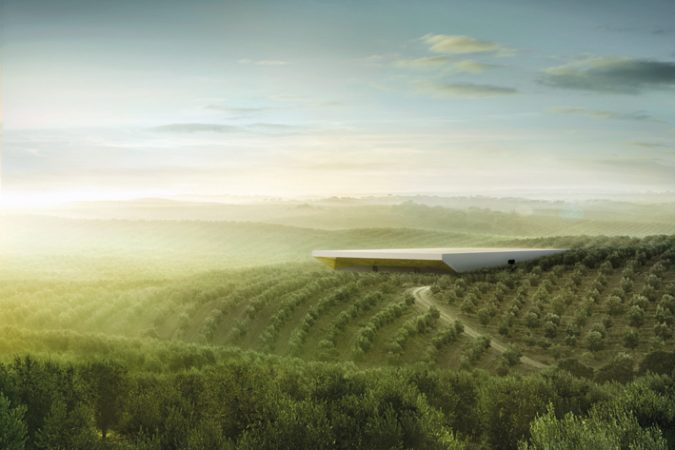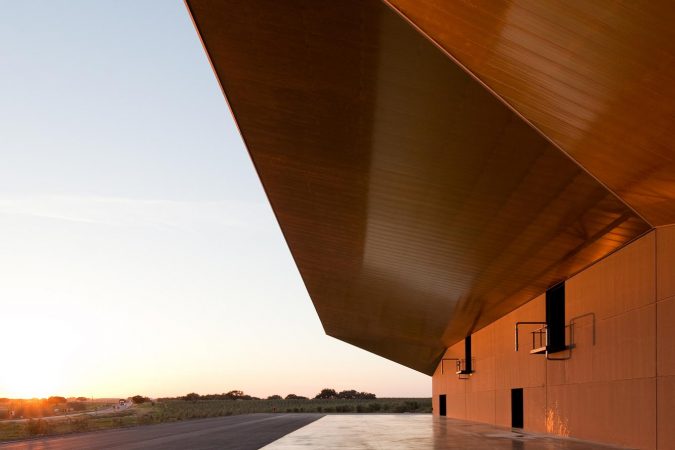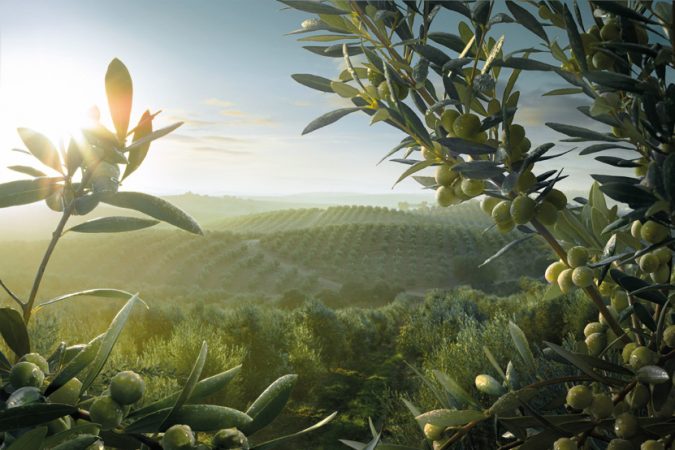A well-oiled machine
Over 200,000 tonnes of olive oil sold and a turnover of €1.5 billion in 2017 are some of the impressive numbers from Sovena, the family business with 100% Portuguese capital whose products are present in more than 70 countries. Factories, olive mills and olive groves are part of its heritage, in and outside of Portugal. This well-oiled machine has its heart set on continuing to generate wealth
It is thanks to olive oil that the Sovena Group has kept its business in good shape, fattening up its growth numbers in the last few years. Dominating a ’series of business areas that also include the production and sale of vegetable oils, biodiesel oil and olives, the versatile and healthy condiment is sold in astronomical quantities to markets in the four continents, particularly to Spain, the US, Portugal, France and Brazil. To respond to the growing demand of its global expansion, Sovena (which is part of the Nutrinveste organisation owned by the Mello family) is physically present in those same markets (except for France), along with Tunisia, Morocco and China, through production or distribution structures.
Through the acquisition of companies and, since 2007, the plantation and farming of olive groves – in Portugal and overseas in both cases (see timeline) –, the company has become one of the biggest global players in producing and selling this natural fat that is essential to the famous and widely recommended Mediterranean diet (which it has been promoting through various initiatives, combining health and commercial benefits). The synergies and the advantages achieved have enabled the company to flaunt a huge variety of product ranges in its portfolio, from the run-of-the-mill to award-winning products for their unique qualities, with the most diverse range of acidity and the most varied organoleptic profiles (smooth, intense, fruity, spicy, robust…). At the table of many consumers worldwide are their own brands, namely the Oliveira da Serra olive oil in Portugal, Andorinha in Brazil, Soleada and Fontoliva in Spain and Olivari in the US.
These performances owe much to the continuous investment in innovation and in the implementation of measures that look to increase environmental sustainability, namely in terms of the energy efficiency of its production processes. With its roots in the Companhia União Fabril (CUF), established in Barreiro in the Setúbal district by the industrialist Alfredo Silva in the late 19th century, the Sovena Group gained its current name and image in 2008 as the result of a process that began in the 1980s, when Jorge de Mello began rebuilding the empire that had crumbled under the social and political instability of the 1974 Revolution. Since then, the activity around olive oil and oilseeds increased gradually, culminating in an international expansion with radical outlines: from the initial 80% of sales in Portugal, the group now boasts 80% of sales abroad.
In this process, it is worth highlighting the brand Oliveira da Serra, the most iconic in Portugal and which, after the first steps mainly aimed at the “saudade market” (referring to the Portuguese feeling of nostalgia among emigrants) and Portuguese-speaking African countries, has recently and increasingly reached destinations as far-flung as Russia and China, with growth rates of around 30%.

One of the largest olive groves in the world
Although the olive oil business is the strategic focus of the company, the other areas of business – oilseed milling and refining, biodiesel, blending and packaging olive oils, preparation and packaging of table olives, vegetable oil packaging, soap production and olive grove farming – have allowed Sovena to draw important synergies and complementarities. A clear example of this is its foray into the agricultural side in 2007, which today translates into a total of 15,000 hectares of olive grove (on land distributed across Portugal, Spain and Morocco), and therefore ensuring a greater presence in the value chain and greater ease of access to the raw material.
“With the ambition of heightening Portugal on the global olive oil scene, Sovena was responsible for one of the most significant agricultural and symbolic investments that has taken place in our country in recent years,” says the company, in keeping with its strategic strategy that, “on one hand, hopes to integrate the entire value chain, and on the other hand, modernise the Portuguese olive grove”.
The year 2010 went down in the history of Sovena as the date that the company managed to close the olive oil chain by inaugurating the Lagar Oliveira da Serra, located in Ferreira do Alentejo. Covering more than 5,000sqm, what was “one of the biggest private investments to take place in the sector in Portugal in the last 20 years”, according to its developer, also stood out for its architectural lines and its environmentally sustainable stamp (it is certified in integrated production). It thus aims to make the least impact on nature as possible: the water is reused to water the olive groves, it is possible to reuse the sub-products generated, such as the olive pip, used as a source of fuel to generate heat, and the bagaço (bagasse), which is sold as a biomass to produce energy. This series of triumphs has earned the team several distinctions on a national and international level. Later, in 2013, a new mill was inaugurated in Avis, with the aim of responding to the production of new olive groves in the Upper Alentejo.

According to the latest data provided by the company, “the olive harvest of 2017/2018 amounted to around 120,000 tonnes”. At cruising speed, Sovena is able to produce 17,000 tonnes of olive oil in Portugal, thanks to its olive groves. To get a better idea of the (r)evolution taking place in this sector, the company notes that, in 2005, the total amount of production on an international scale didn’t reach 30,000 litres of olive oil (i.e. just under 27,500 tonnes).
According to the press release from the new CEO president, Jorge de Mello, after taking on the leadership of the company earlier this year, the strategic goal is now to implement “a new dynamic in the field of olive oils”, – in which Portugal is the 9th largest global producer, according to the International Olive Council (representing 2.7% of production) –, by investing in reinforcing innovation further and taking this product, so consolidated on Portuguese dinner tables and in the eating habits of a growing number of people worldwide, even further through internationalisation.
From data gathered by the National Statistical Institute, the consumption of olive oil in Portugal has remained at 7.1kg per inhabitant, per year, earning it the 10th place in global consumption (2.4%).
SOVENA IN NUMBERS:
Turnover 2017: €1.5 billion
Annual sales volume (in litres): 200,000 tonnes of olive oil
Exports (no. of countries): 70 countries
Olive grove: 15.000 ha in Portugal, Spain and Morocco
Overall production of the mills (at cruising speed): 20 million litres
No. of employees: 1,300
No. of countries with physical presence (offices/plants/mills):
Offices: Portugal, Spain, USA, Brazil, Tunisia, Morocco and China
Plants: Portugal, Spain, USA, Tunisia
Mills: Portugal, Spain, Morocco
Timeline
Late 19th century – At the hands of Alfredo Silva, the first industrial, commercial and financial group in Portugal was born: the Companhia União Fabril (CUF). By the 20th century, the industrial complex, located in Barreiro (district of Setúbal, on the south bank of the Tagus bay), became responsible for 5% of the Portuguese Gross Domestic Product, with over 100 companies, 1,000 running products and 110,000 employees, with various businesses that ranged from shipbuilding to fertilisers and textiles, through to the cooking oils.
The 1980s – With the return of the country’s social and political stability following the Carnation Revolution of ’74, Jorge de Mello and José Manuel de Mello began rebuilding the group. Jorge de Mello acquired the Sociedade Alco, Algodoeira Comercial e Industrial, dedicated to extracting, refining and packaging cooking oils, and then the Torrejana de Azeites factory in Torres Novas.
The 1990s – New acquisitions reinforced the then Alco Group in the cooking oil market: Lusol (oil extraction and refinement and soap production), Tagol (extraction and refinement of oilseeds) and Sovena, born in 1956 from a partnership between CUF, Macedo e Coelho and the Sociedade Nacional de Sabões, to sell vegetable oils and soaps.
2002 – The acquisition of the Agribética assets in Seville, which later became part of Sovena Ibérica de Aceites, responsible for refining and packaging vegetable oils (mostly olive oil), allowed the Alco Group to become the biggest player in the Iberian Peninsula.
2004 – With the acquisition of Simão & Companhia, the goal was to relaunch its Andorinha brand on the Brazilian market.

2005 – Acquisition of 80% of the capital of East Coast Olive Oil, the largest importer and packer of olive oils in the US. In Spain, Tagol Ibérica de Aceites was established to ease access to the national sunflower seed market.
2006 – In partnership with Bunge, Tagol formed BioColza, whose main activity consists of extracting rapeseed and selling the resulting products. In Spain, the group acquired the capital of Exoliva, the company dedicated to preparing and packaging olives, essentially for exporting and with a relevant position on the Russian, Ukrainian and Middle-Eastern markets. This year also saw the creation of Soprolives in Morocco, in partnership with SOMED, through which it started to produce and sell olive oil for various markets through olive grove harvesting.
2007 – Sovena MENA (Middle East & North Africa) was created in Tunisia, through a partnership with a local company to supply the Tunisian market and surroundings. The Elaia project was also launched, another local partnership, whose objective was to plant around 10,000 hectares of olive groves that contribute towards increased control of the entire production process.
2008 – The identity and image of the then Alco Group and respective companies was restructured and unified, giving way to the Sovena Group, with four different areas of business: Agriculture, Consumer Goods, Oilseeds and Biodiesel.
2010 – The Lagar Oliveira da Serra in Ferreira do Alentejo (Beja district) was established, designed by the Portuguese architect Ricardo Bak Gordon and considered a technological, architectural and environmentally sustainable feat.
2012 – Work kicked off at the new olive oil mill in Avis (Alentejo, Portalegre district).
2014 – 100% of the plant in Andújar, Spain, was acquired.
2015 – The year that Sovena began direct distribution to Brazil (after 10 years of that role being undertaken by a local partner)










